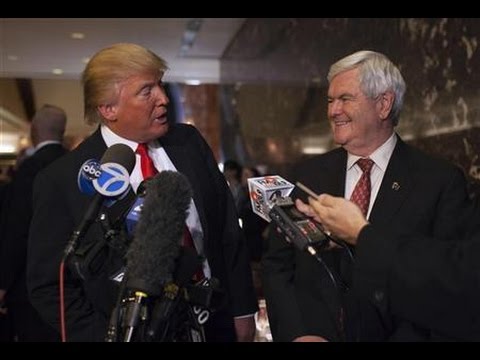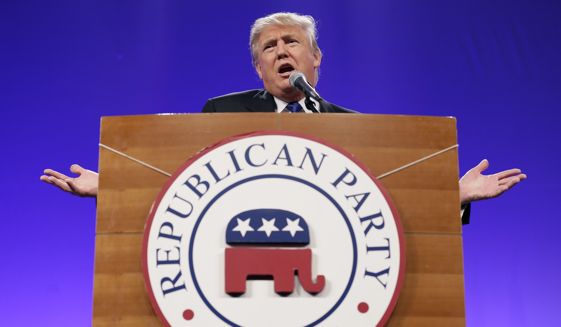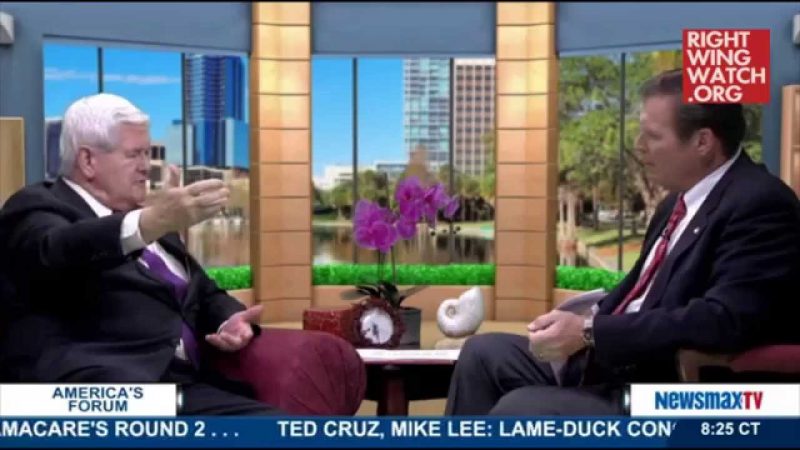Apparently Newt Gingrich was so moved by the rousing, presidential-like reception he received at CPAC, that he is once again mulling over the possibility of a presidential bid (via Ben Smith):
Newt Gingrich, the conservative former Speaker of the House, didn’t rule it out tonight in Ashland, before he was to address a packed house of 650-plus at Randolph-Macon College.
“Callista and I will look seriously and we’ll probably get our family totally engaged, including our two grandchildren, probably in January, 2011, Gingrich told reporters during a sit-down interview before last night’s speech.
“We’ll look seriously at whether or not we think its necessary to do it. And if we think it’s necessary we’ll probably do it. And if it isn’t necessary we probably won’t do it.”
So if, two years down the road, Gingrich decides it is “necessary” for him to run for president, then he’s in. If not, then he’s not. What, aside from his own ego, could ever make a Gingrich campaign “necessary”?
There certainly isn’t any reason to think that a future run will be any more successful than the last one he contemplated when, just days after saying that if he could raise $30 million he’d run, he announced that he wasn’t going to run after all and then blaming the whole thing on campaign finance laws:
After months of teasing—all the way up to last week—former House Speaker Newt Gingrich announced over the weekend that he would not, in fact, run for president. According to Gingrich, his plan to campaign for $30 million in commitments would conflict with his role as chairman of “American Solutions for Winning the Future” due to “misguided and destructive campaign finance laws.” Reactions on the Right ranged from relief (“there were lots of people … who are glad that he made the decision not to run,” said Marvin Olasky) to bitter disappointment (“Was it a scam? That’s what people are sort of hinting at,” speculated long-time Gingrich ally Matt Towery).
Gingrich founded the futuristic American Solutions (zen-like motto: “Real change requires real change”) as a 527, the controversial IRS category known for its use as a way to channel unrestricted “soft money” toward “issue advocacy,” occasionally—as with the Club for Growth and the Swift Boat Veterans for Truth—for the transparent purpose of supporting or opposing the election of candidates. When Gingrich founded his group, it was immediately suspected as a way for him to build a mailing list and rehabilitate his national profile while avoiding the protracted primary season, which he called “stupid.” Maintaining leadership of the 527 while dropping the pretense that he was not running would have made the group’s practical aim almost explicit, despite his cheeky claim that it is “a unique non-partisan institution — the only 527 of its kind.”
“It was a curious argument, since both the 527 group and Gingrich’s apparent White House ambitions have been around for about a year. Why did it take so long for Gingrich and his crack team of lawyers to realize that he couldn’t have it both ways?” asked the National Journal blog.







